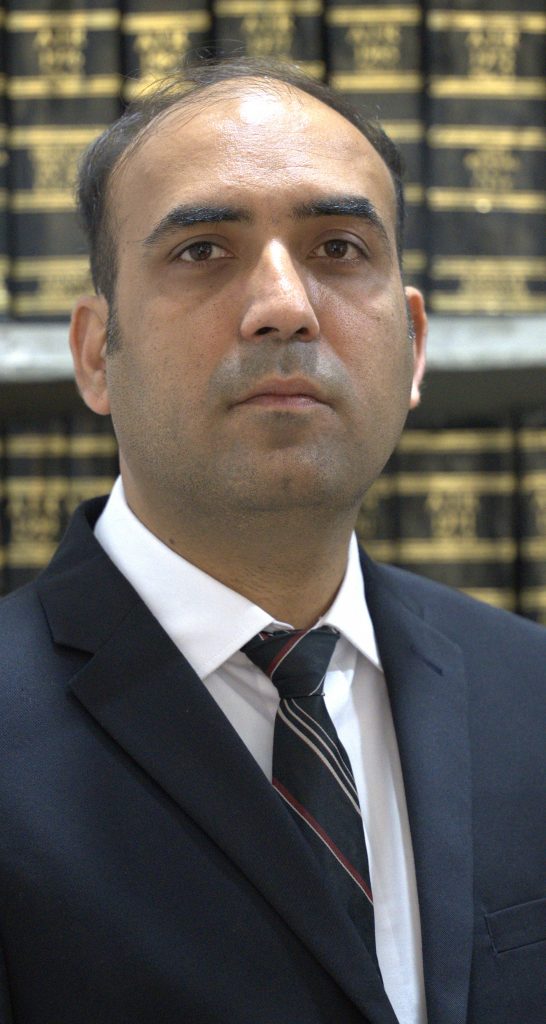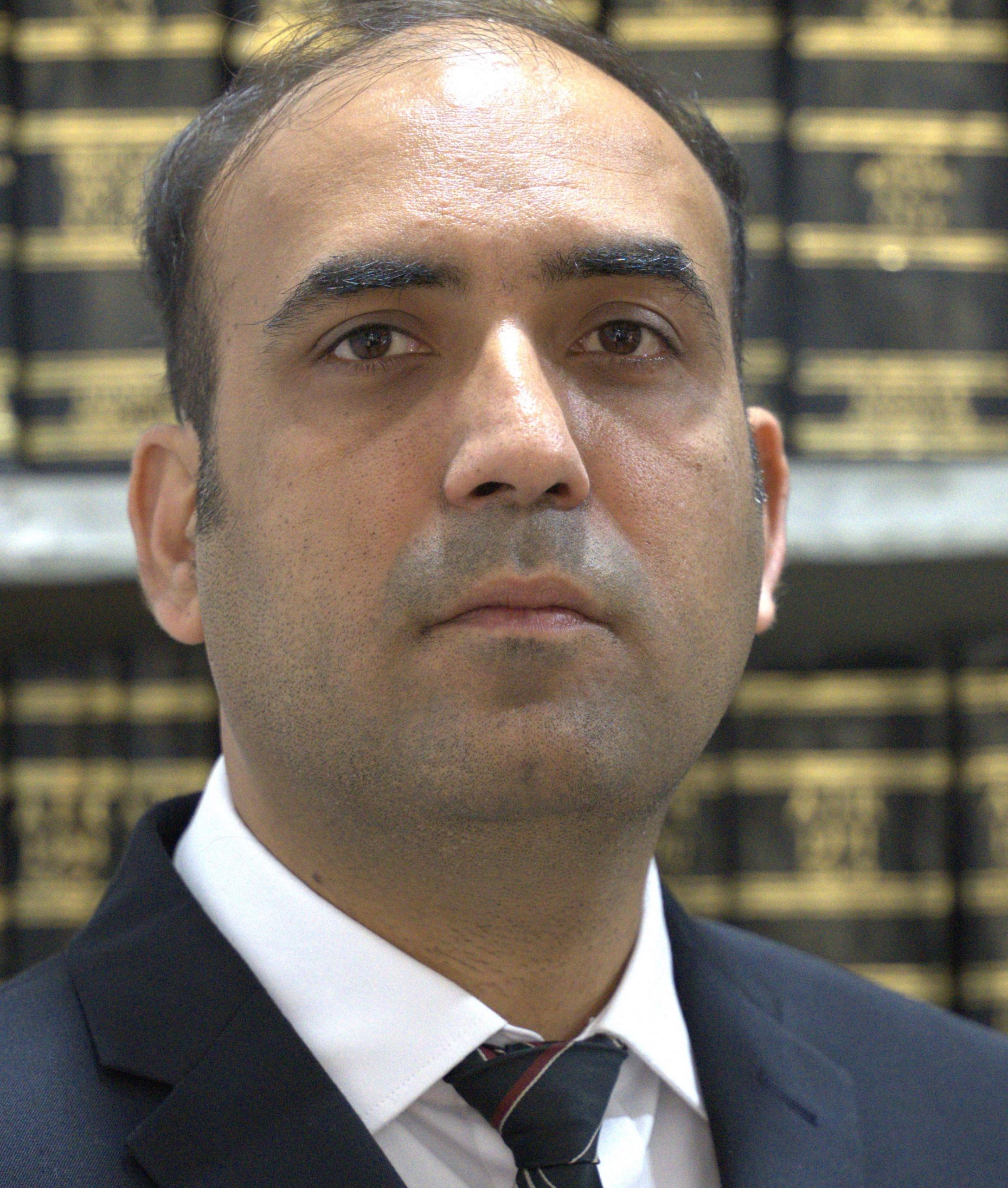This Interview has been published by Pragya Chandni and The SuperLawyer Team

Can you share with us your journey into law? What motivated you to pursue both chartered accountancy and a bachelor’s degree in law?
Since I was born in the family of lawyers, I would further like to say that both my grandfather and my father, who themselves were in the field of law as regular practitioners mainly in the state High Court & from them I was fully inspired to join the profession of law. My elder brother who already had preferred to join the same profession in the established law firm Khanna And Associates. Being fully inspired & encouraged joining the law firm passionately, & finding fully satisfied positively ensuring myself in choosing this right path into the profession of law.
It needs no mention to state that the repute and the status that this profession owed to our family is un parallel and being able to make an impact in the society by using the law in the best interest of the society is always the motivation behind pursuing the law
Not to forget the black uniform, the British formalities, and being able to express yourself more profoundly seemed charming to the younger version of me back in the days of opting for law.
I always wanted to work with big corporations shoulder to shoulder and thus law and chartered accountancy both has opened this gateway for me.
Your expertise lies in a diverse range of legal areas, from corporate compliance to taxation and intellectual property. How did you develop such a multifaceted skill set?
When you plan to work in business law, you have to equip yourself with whatever it takes. There is no exception to that. As a corporate lawyer your job expects you to guide your client in all the aspects of law applicable to them and since your client is a corporate entity you have to equip yourself with all the laws applicable to the entity and such dynamics keep changing with the change of law or change of business circumstances.
Your expertise has to vary in various areas of corporate/business law :
- Whether it is forming/incorporating a company in the best business structure for your clients business.
- Devising the best tax strategy, acting as their legal architect, formulation of a plan for them to execute their business or routing the funds by abiding the banking laws thus forcing you to become an expert in banking law as well.
- Once when the company is set up then you have to devise various internal controls for which you have to be well versed with various auditing procedures, practices and standards enabling you to guide your client entity to manage itself without disputes and with full transparency. Thus Auditing knowledge comes into picture and you are required to have the knowledge of this field.
- When your client starts recruiting employees then you are assumed to be a contractual law expert along with tax and employment laws as applicable to the respective industry.
- When your client begins operation/production you are expected to be an expert in seeking various licenses and IPR laws.
- Then finally after all this spade work you reach corporate advisory. Advising provisions as applicable to directors and KMP and the entity as well.
Thus as a corporate lawyer you have to put your mind in various branches of law that offshoots from company law itself.
As the founder of Startup Solicitors LLP, you’ve been deeply involved in helping startups navigate legal complexities. Could you tell us about a particularly challenging case or project you’ve worked on and how you tackled it?
As a law firm we are more likely than not to face challenges in terms of legal complexities. The world is evolving with unprecedented pace and keeping up with the AI and Web3.0 hand in hand with legalities which are not adapting with the pace of technology.
Though there are many challenging project that came before us, but one interesting project that I would like to draw your attention to would be is of a US client who is working in the blockchain technology and wanting to launch their cryptocurrency few years back when lawmakers did not inked a word on the legality of cryptocurrency. The challenges that we faced were many :-
- Whether the cryptocurrency can be tendered as a legal currency in India ?
- Whether Crypto mining is acceptable in India ?
- Can Cryptocurrency be listed in regulated markets in India ? If not can a Crypto exchange be formulated ?
- What is the Tax applicability on crypto transactions in India ?
- How to report cryptocurrency to the government Authorities in India ?
- Which country in the globe is most suitable for ICO launch and Crypto mining if not India?
It took us a lot of research work in both the legal and geo political field in understanding the mindsets of various countries towards crypto currency acceptance enabling us to advise the client in choosing India vs Rest of the world for its multi-billion dollar idea. Helping him find the right country for setting up business, choosing the right country for its distinctive operations keeping in mind the future plans of our client.
Today, we can see the global acceptance of crypto currency. The law remains in grey areas in various parts of the globe.
With your experience in assisting multi-million dollar companies expand into India and serving on their boards, what are some common challenges these companies face when entering the Indian market, and how do you address them?
The major problem that multi-million dollar companies face while entering India to expand is choosing the wrong shareholding structure and wrong business structure delaying the corporate compliances and inviting various penalties.
We address the same by emulating a documentary check and analyzing the business structure comprehensively from all corners and creating timeline keeping in mind the MCA compliances, RBI Compliance, FRRO Compliances and tax laws prior to executing the incorporation process for setting up company in India
You’ve been involved in setting up new businesses and handling legal and financial consultations. Could you walk us through the process of setting up a new business, highlighting the key legal considerations and steps involved?
Setting up a new business involves several key legal considerations and steps. Here’s an outline of the process:
- Choose a Business Structure: Decide on the legal structure of your business. Common options include sole proprietorship, partnership, limited liability company (LLC), or corporation. Each structure has different legal and tax implications, so it’s essential to choose the one that best fits your needs.
- Register Your Business: Register your business name with the appropriate government authorities. This may involve registering a “Doing Business As” (DBA) name or incorporating your business with the state.
- Obtain Necessary Permits and Licenses: Depending on your industry and location, you may need to obtain specific permits or licenses to operate legally. Research the requirements in your area and ensure compliance.
- Secure Intellectual Property Rights: If your business involves unique products, services, or branding, consider securing intellectual property rights through patents, trademarks, or copyrights. This can help protect your business from infringement and establish your ownership of valuable assets.
- Set Up Taxation and Financial Systems: Obtain an Employer Identification Number (EIN) from the IRS if necessary. Set up accounting and financial systems to track income, expenses, and taxes. Consult with a tax advisor to ensure compliance with tax regulations.
- Draft Legal Documents: Create legal documents such as contracts, agreements, and terms of service. These documents define the rights and responsibilities of your business and its stakeholders, including customers, suppliers, and employees.
- Hire Employees: If you plan to hire employees, familiarize yourself with employment laws and regulations. Create employment contracts, establish payroll systems, and adhere to labor laws regarding wages, working hours, and workplace safety.
- Protect Your Business: Purchase insurance coverage to protect your business against potential risks such as property damage, liability claims, or employee injuries. Consider general liability insurance, professional liability insurance, and other relevant policies.
- Comply with Regulations: Stay informed about industry-specific regulations and compliance requirements. Depending on your business activities, you may need to adhere to environmental regulations, health and safety standards, or data protection laws.
- Create a Business Plan: Develop a comprehensive business plan outlining your goals, strategies, and financial projections. A well-crafted business plan can help attract investors, secure financing, and guide your business’s growth and development.
- Open a Business Bank Account: Separate your personal and business finances by opening a dedicated business bank account. This will simplify accounting, tax reporting, and financial management.
- Market Your Business: Develop a marketing plan to promote your products or services and attract customers. Consider online and offline marketing channels, such as websites, social media, advertising, and networking events.
- Stay Compliant and Adapt: Regularly review and update your business practices to ensure ongoing compliance with legal requirements and industry standards. Stay informed about changes in regulations or market conditions that may impact your business operations.
Your background includes work with Forbes Asia Pacific Enlisted clients and conducting audits for various organizations. How do you maintain a high level of professionalism and attention to detail in your audit processes?
That is just experience and practice. You learn every day, you evolve and you grow every day.
Could you share a particularly rewarding moment in your career, where you felt your expertise made a significant impact on a client’s success or outcome?
Well, there are many and I would like to share few:
- Standing shoulder to shoulder with my father and assisting him in arguing a matter in High Court, witnessing him argue with perfection and representing the client was not less than a reward for me in my early days of career.
- Now today as the time has passed since my inception in the field of law and finance I feel very happy seeing that we helped some European Jewelry companies and US based IT companies set up their base in India leading them to scale volumes and generate employment in INDIA.
Lastly, considering your extensive experience and knowledge, what advice would you give to fresh graduates aspiring to enter the fields of law and finance? What key lessons have you learned throughout your career that you believe would benefit them?
Be genuine. Be Honest with your client. Say no if he cannot win the case.
Get in touch with Nipun Khanna-
























